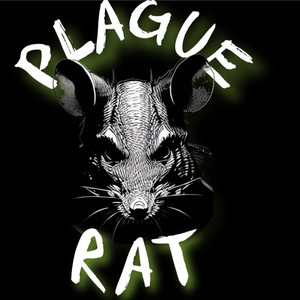Unraveling the Meaning of “Plague Rat”: Beyond Words

In the vast tapestry of language, some terms carry a weight far beyond their mere definitions. “Plague rat” is one such phrase, steeped in history, laden with imagery, and carrying connotations that evoke both fear and intrigue. To truly understand its significance, one must delve into its origins, its evolution, and the layers of meaning it has acquired over time.
At its most literal level, “plague rat” is a term that emerged during one of the darkest chapters of human history: the Black Death.
The story continues
This devastating pandemic, which ravaged Europe in the 14th century, claimed millions of lives and left an indelible mark on the collective consciousness. Rats, unwitting carriers of the fleas responsible for transmitting the disease, became symbolic of the epidemic’s grim reality. The term “plague rat” thus became synonymous with both the carriers of disease and, by extension, those who spread contagion through negligence or malicious intent.
But the resonance of “plague rat” extends far beyond its historical roots. In contemporary usage, it has become a metaphor, invoking notions of betrayal, deceit, and moral decay. It is wielded to describe individuals who exhibit traits reminiscent of the vermin that once brought cities to their knees—those who sow discord, manipulate others for personal gain, or act with callous disregard for the well-being of society.
However, like many terms that carry such potent imagery, “plague rat” is not without controversy. Its usage can be fraught with implications, and its indiscriminate application risks dehumanizing individuals or groups, reducing complex human behavior to simplistic caricatures. Moreover, it can perpetuate harmful stereotypes and stigmatize marginalized communities, as has often been the case with diseases throughout history.
Yet, despite these caveats, the term persists, its power undiminished by the passage of time. In part, this is a testament to the enduring potency of language itself—a tool capable of encapsulating centuries of history, emotion, and meaning within a few simple words. But it also speaks to something deeper within the human psyche: our fascination with the darker aspects of our nature, our impulse to label and categorize, and our eternal quest for understanding in the face of adversity.
So what, then, do we make of “plague rat”? Is it a relic of a bygone era, best left to gather dust in the annals of history? Or is it a living symbol, a reminder of our capacity for both good and evil, and the ever-present threat of that which lies in the shadows? Perhaps it is both—and more besides—a mirror reflecting back to us the complexities of the human experience, and a warning of what may yet come to pass if we fail to heed its lessons.
In the end, the meaning of “plague rat” is not fixed or immutable. It is a fluid concept, shaped by the contexts in which it is invoked and the perceptions of those who hear it. It is a reflection of our fears, our aspirations, and our shared humanity—a reminder that, even in our darkest moments, there is always hope for redemption, and the possibility of forging a path towards a brighter future.
As we navigate the uncertainties of our own time, let us remember the lessons of the past, and the stories woven into the fabric of words like “plague rat.” For in understanding where we have been, we may yet find the wisdom to chart a course towards a world where such terms hold no power, and where the light of compassion and understanding shines bright enough to banish even the darkest shadows.
























Comments
This post currently has no comments.